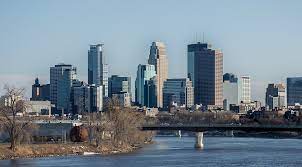Minneapolis Empowers Red Lake Tribe to Build Addiction Treatment Oasis

In an extraordinary move, Minneapolis is poised to extend a helping hand to the Red Lake Band of Chippewa by transferring ownership of two city-owned properties. These properties are earmarked for the construction of a much-needed addiction treatment center, aiming to combat the pressing issue of addiction within the Native American community.
A Beacon of Hope for the Red Lake Tribe
Mayor Jacob Frey unveiled this groundbreaking plan on Thursday, outlining the intention to sell these properties to the Red Lake Band for a symbolic sum of $1 each. This move underlines the city’s commitment to addressing the disproportionate impact of addiction on the Native American community.
“We’re forging a direct partnership with a community that has borne the brunt of this crisis,” Frey stated emphatically. “This isn’t merely about transferring land; it’s about making a substantial commitment to tackle a grave issue head-on.”
Progressive Steps Towards Healing
The proposal will soon find its way to the City Council, slated for presentation next week, with the council expected to take decisive action on October 5th. This initiative comes on the heels of the Minnesota Legislature’s decision earlier this year to transfer ownership of a state park to a Dakota tribe. This transfer, located in western Minnesota, was driven, in part, by the desire to make amends for historical conflicts between settlers and a faction of the Dakota people, which tragically culminated in the mass hanging of Dakota men.
In Minneapolis, the Red Lake leaders have already initiated renovations on one of the parcels, and ambitious plans are in motion for the adjacent parcel to transform into a serene garden, where sacred ceremonies can be held. Moreover, the envisioned opioid treatment center may also incorporate housing facilities.
Cheri Goodwin, the Executive Director of the Red Lake Nation, expressed her enthusiasm, stating, “We are resolute in erasing the disparities that have plagued us for far too long. Our future facility will offer vital amenities, including a kitchen, showers, washers, and dryers. We will also provide essential cultural services, and these land plots will form the cornerstone of our cultural community garden. This is where our dreams will take shape, unhindered.”
This progressive initiative by Minneapolis not only demonstrates a commitment to healing but also symbolizes a harmonious partnership that aims to address the urgent needs of the Native American community. As plans take shape and construction begins, hope is rekindled, and a brighter future for all those affected by addiction seems within reach.








